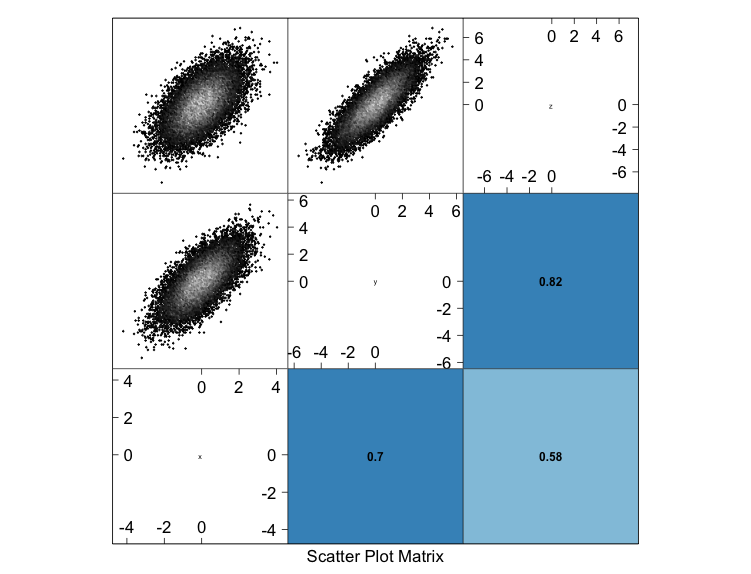Modify splom to use hexbin panels and show pearson correlations
November 30, 2012The following function will display a scatter plot matrix based on
splom (a lattice function) with the following modifications:
- the scatter plots are replaced with hexbin plots
- the lower diagonal shows pearson correlation coefficients instead of scatter plots
library(lattice)
library(latticeExtra)
library(hexbin)
compRepl <- function(df) {
# function to compare replicates (each variable of df)
# as hexbin plot matrix
# Args:
# df data frame
# Results:
# lattice plot
ct <- custom.theme(
symbol = c("black", brewer.pal(n = 8, name = "Dark2")),
fill = brewer.pal(n = 12, name = "Set3"),
region = brewer.pal(n = 11, name = "Spectral"),
reference = "#e8e8e8",
bg = "transparent", fg = "black",
lwd=2, pch=16
)
ct$axis.text$cex = 1.4
ct$par.xlab.text$cex = 1.4
ct$par.ylab.text$cex = 1.4
splom(~df,
#pscales = 0, #don't show axes,
par.settings = ct,
upper.panel = panel.hexbinplot, # use hexbinplot
xbins = 100, # number of bins
trans = log10, inv=function(x) 10^x, # density color scale transformation
#colramp = magent, # with this color scheme
colramp = LinGray,
# show correlation coefficient in lower panel
lower.panel = function(x, y, ...) {
panel.fill(col = brewer.pal(9, "RdBu")[round(cor(x, y) * 4 + 5)])
panel.text(sum(range(x))/2, sum(range(y))/2, round(cor(x, y), 2), font = 2)
},
varname.cex = 0.6 #smaller name in diagonal
)
}
Example usage:
x <- rnorm(20000)
y <- x + rnorm(20000, 0.05)
z <- y + rnorm(20000, 0.05)
compRepl(data.frame(x, y, z))
